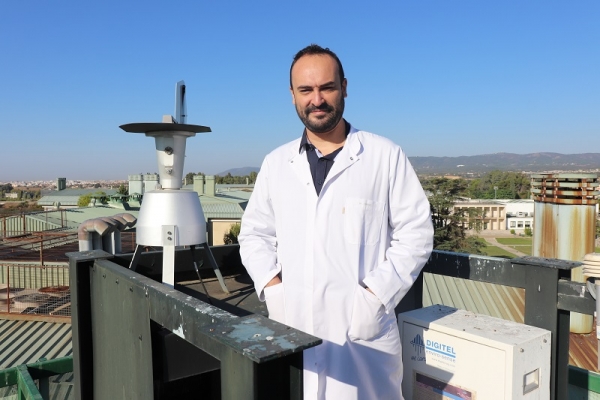Bavaria is currently the German state with the most woodland areas. Among the notable species there, birches occupy a good portion of the territory. According to projections issued by an international team on which the University of Córdoba is participating, there will be a reduction in birch trees in Bavaria will by the end of the century. A similar forecast was issued within the framework of a research project funded by the German region of Bavaria's Ministry of Health and the Environment, one which made it possible to develop a predictive model based on pollen data collected in the area over a period of 30 years.
This sampling network was recently reactivated and expanded under the coordination of Professor José Antonio Oteros, a member of the RNM-130 research group at the University of Córdoba. Oteros oversaw the automation of aerobiological pollen collectors in Bavaria, the first such automatic network in history. “This has allowed us to generate a high-quality database containing real field measurements in certain parts of Bavaria. In some of them pollen has been measured daily for 30 years,” Oteros explained.
The integrated model shows that climate change will result in a decrease in airborne birch pollen in northern Bavaria, particularly in the northeast, where most birch trees are currently found. At the same time, warmer summer temperatures in the south will initially favour pollen production, and there will be more pronounced pollination seasons. However, this early increase in airborne pollen is expected to be followed by a decline in the plants themselves towards the end of the 21st century as climate change impacts the distribution of birch trees.
According to the research team, it has been observed that climate change will increase the pollen production of these anemophilic species, but will also decrease the populations of plants that emit pollen. "Thus, despite the fact that the plants should produce more pollen, that potential decrease expected[in their number], according to the different climate change scenarios, means a reduced total amount," concluded José A. Oteros.
Thanks to the field data collected by the network of aerobiological collectors, the research team created a mathematical model that explains the relationship between environmental conditions and the amount of pollen in the air. "We have been able to infer, through extrapolation, what the pollen conditions are going to be in the future depending on the different socioeconomic and emissions scenarios expected," the researcher added.
The pollen analysed comes from allergenic and anemophilic plants; that is, plants that have the capacity to produce allergies in the population and plants that emit pollen into the air. This work deals exclusively with birch pollen, the main cause of allergy in some areas of Bavaria. Oteros clarified that they also have another project in the pipeline on grasses, the leading cause of pollen allergy worldwide.
This study was funded by the Bavarian State's Ministry of the Environment and Consumer Protection as project K3-8503-PN-18-26-D27432 / 2018; projects TKP01KPB-73815 and TKP01KPB-73813; and by Project AP-2460-ePIN-V11-U1-D44520 / 2018 of the Bavarian State's Ministry of Health and Healthcare.
References
Rojo, J., Oteros, J., Picornell, A., Maya-Manzano, J. M., Damialis, A., Zink, K., Werchan, M., Werchan, B., Smith, M., Menzel, A., Timpf, S., Traidl-Hoffmann, C., Bergmann, K.-C., Schmidt-Weber, C. B., &Buters, J. (2021). Effects of future climate change on birch abundance and their pollen load. Global Change Biology, 27, 5934– 5949. https://doi.org/10.1111/gcb.15824


